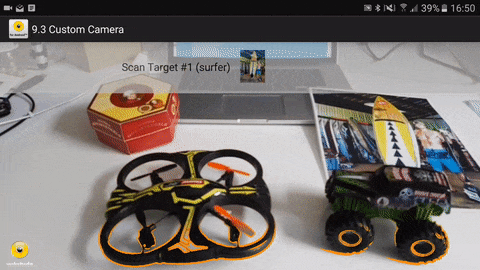Early Metrics’ ratings, which focus on key non-financial metrics, provide an independent assessment of a venture’ growth potential. The ratings support decision-makers, such as investors and corporations, in identifying and understanding in-depth the most innovative startups across Europe.
Wikitude is the world’s leading independent AR technology provider with a robust ecosystem of over 100,000 registered developers and 20,000 published apps covering a wide variety of industries and use-cases. Its fully in-house developed SDK enables enterprises, agencies, and developers to create powerful AR solutions for mobile devices and smart glasses that delight users and provide tangible ROI.
With the addition of SLAM technology in January 2017, Wikitude’s SDK is the AR market’s most comprehensive developer tool with a combination of location-based, image-based recognition and tracking, and 3D tracking capabilities. Wikitude’s SLAM-based markerless tracking is the most versatile 3D tracking system available for mobile today.
Martin Herdina, CEO at Wikitude, says: “We are delighted by this award. Over $2 billion of investments went into AR/VR in 2016. Being among the top 1% of startups rated by an independent third party shows that we are headed in the right direction in a super exciting market segment. You can expect even more exciting news from Wikitude this year”.
About Wikitude®
Wikitude is the world’s mobile augmented reality (AR) pioneer and leading AR technology provider for smartphones, tablets and digital eyewear on both iOS and Android. Its fully in-house developed AR technology is available through its SDK, Cloud Recognition and Studio products enabling brands, agencies and developers to achieve their AR goals. Wikitude® is a registered trademark of Wikitude GmbH, for more information please visit: www.wikitude.com
About Early Metrics
Early Metrics is the pan-european rating agency for startups and innovative SMEs, analyzing non-financial metrics to assess their growth potential. Ratings are free for entrepreneurs and provide them with a third party assessment, supporting their growth development. Established in London, Paris and Tel Aviv, Early Metrics works on behalf of private and institutional investors as well as corporates ventures and business units. To get rated or to access rating reports: contact@earlymetrics.com
 Support
Support FAQ
FAQ

























